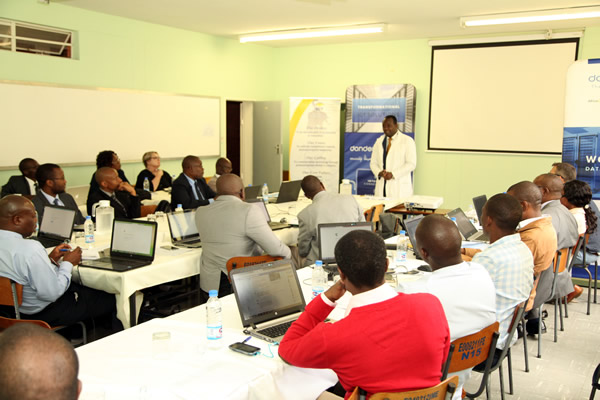Zimbabwe has a mobile penetration rate of 102.7 percent (according to PORTAZ January 2018) meaning over 100 percent of the Zimbabwean population has access to the internet, which is the biggest source of information. There is now a need for every sector of our government to have a web presence.
The flagship ministry of our government the Ministry of Media, Information and Broadcasting Services that does not have a basic website or an online presence, this is where the problem starts. So where is the source of this nations information if our information ministry does not have the basics in place?
Majority of government websites are not updated with most having information that dates back to the Mugabe era. Our provinces and districts do not have any web presence of any form yet we produce 40,000 information and communication technology (ICT) graduates every year with most of them being self-employed.
Ninety Six percent of our local authorities do not have a website or social media presence and their ICT systems are over 25 years old. It should be government policy that each ministry and local authority should have a Chief Technology Officer (CTO) or a Chief Information Officer (CIO) whose role is to manage the ministry’s or local authority’s ICT services.
It should be the duty of the Minister and the Permanent Secretary to have a basic website, emails and working ICT services for their ministry. Failure to achieve this one should be dismissed. This should filter down to provinces and districts and creating the much-needed employment for our ICT graduates.
Zimbabwe’s information and communication technology (ICT) private sector has been the most thriving sector and will continue to do so for the next 20 years leaving behind the government sector which continues to lag behind by close to 25 years.
There is now a need to have the transfer of skills from the private sector to government in order for this country to bridge this massive skills gap.
Zimbabwe’s ICT sector has grown at a rapid rate compared to world standards and has become a specialized area of economic interest. Unlike all other sectors of the Zimbabwean economy, the ICT industry has remained remarkably resilient in the face of the macro-economic instability.
At this time when our economy growth is slow and continuous volatility in Zimbabwe our government should be looking for policies that will stimulate growth and create entrepreneurships among the ICT sector that will feedback in the government sector from the private sector.
Considering that our government and parastatals are 25 years behind when it comes to ICT, there is now a need for Zimbabwe’s government to have a development agenda that turn towards inclusive growth, creating an environment where there is participatory decision-making that brings together the government and the private sector in finding ICT viable solutions to some of these basic challenges being faced by Zimbabwe’s government.
Engineer Jacob Kudzayi Mutisi
Chairman of the ICT Divison of Zimbabwe Institution Engineers (ZIE), Member of the Engineering Council of Zimbabwe (ECZ), Member of the Institution of Engineering and Technology (IET) and a Member of Institute of Directors (IOD)
